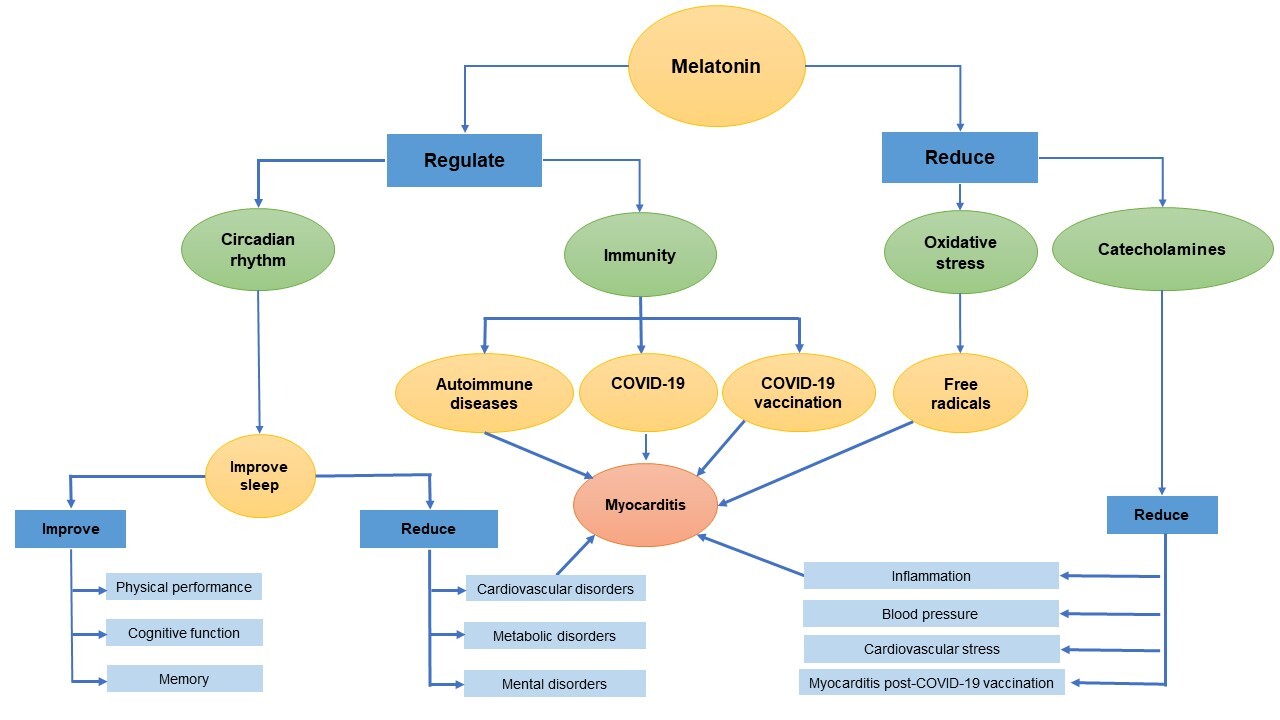Can melatonin reduce the severity of post-COVID-19 syndrome?
DOI:
https://doi.org/10.17179/excli2023-5864Keywords:
antioxidant status, cytokines, dose, free radicals, stressAbstract
This short review aimed at (i) providing an update on the health benefits associated with melatonin supplementation, while (ii) considering future potential research directions concerning melatonin supplementation use relative to Coronavirus disease of 2019 (COVID-19). A narrative review of the literature was undertaken to ascertain the effect of exogenous melatonin administration on humans. Night-time melatonin administration has a positive impact on human physiology and mental health. Indeed, melatonin (i) modulates the circadian components of the sleep-wake cycle; (ii) improves sleep efficiency and mood status; (iii) improves insulin sensitivity; and (iv) reduces inflammatory markers and oxidative stress. Melatonin has also remarkable neuroprotective and cardioprotective effects and may therefore prevent deterioration caused by COVID-19. We suggest that melatonin could be used as a potential therapy in the post-COVID-19 syndrome, and therefore call for action the research community to investigate on the potential use of exogenous melatonin to enhance the quality of life in patients with post-COVID-19 syndrome.

Downloads
Published
How to Cite
License
Copyright (c) 2023 Amine Souissi, Ismail Dergaa, Mohamed Romdhani, Amine Ghram, Khadijeh Irandoust, Karim Chamari, Helmi Ben Saad

This work is licensed under a Creative Commons Attribution 4.0 International License.
Authors who publish in this journal agree to the following terms:
- The authors keep the copyright and grant the journal the right of first publication under the terms of the Creative Commons Attribution license, CC BY 4.0. This licencse permits unrestricted use, distribution and reproduction in any medium, provided that the original work is properly cited.
- The use of general descriptive names, trade names, trademarks, and so forth in this publication, even if not specifically identified, does not imply that these names are not protected by the relevant laws and regulations.
- Because the advice and information in this journal are believed to be true and accurate at the time of publication, neither the authors, the editors, nor the publisher accept any legal responsibility for any errors or omissions presented in the publication. The publisher makes no guarantee, express or implied, with respect to the material contained herein.
- The authors can enter into additional contracts for the non-exclusive distribution of the journal's published version by citing the initial publication in this journal (e.g. publishing in an institutional repository or in a book).





